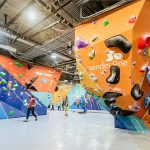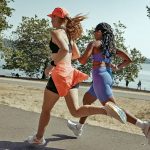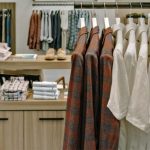The Finish Line, Inc. lost the first round in its bid to extricate itself from its planned merger with Genesco, Inc. and while both parties await for their day in court to address the potential solvency issues of such a union, the impact of the litigation continues to have a negative impact on the bottom line of both companies.
While The Finish Line posted a net loss of $16.0 million, or 34 cents per diluted share, for the third quarter, the loss includes a pre-tax charge of $2.2 million, or 5 cents per diluted share, related to the closure of the companys Paiva stores. The litigation related to the Genesco case was also a factor, responsible for 12 cents per share of the 29 cents per share loss attributed to continuing operations.
The back-to-back declines in comp store sales was exacerbated by the inclusion of one additional back-to-school week in last years third quarter calendar, which accounted for approximately $6.7 million of additional sales, according to The Finish Line.
The gross margin decline for Q3 consisted of a 130 basis point increase in occupancy costs, due primarily to the negative sales for the quarter along with increased occupancy cost for the Man Alive division, and a 60 basis point decline in product margins. The product margin decline was primarily a result of markdowns in the Finish Line division as FINL worked to clean up the inventory position heading into the fourth quarter. Consolidated inventories were down 5% on a comp square foot basis at quarter-end versus the same period last year, while Finish Line store inventories decreased 3% versus last year.
Total company comparable store net sales decreased 3.6% on top of a 3.3% decline for the year-ago period, with comps at the namesake concept, Finish Line, decreasing 3.2% and Man Alive comps decreasing 9.8% versus Q3 last year. Finish Line comp store footwear sales decreased 1.5%, while Softgoods comps, which includes apparel and accessories, decreased 9.5% for the quarter. Both represented a sequential improvement from the sharper declines in the second quarter. Finish Line again posted a double-digit decline in the women's footwear category, but the mens business turned positive, posting a low-single-digit improvement comp sales for the quarter. However, the kids business went negative, comping down in low-single-digits for the period.
Alan Cohen, chairman and CEO of The Finish Line, said they experienced “strong demand” for premium products from Brand Jordan, Air Force 1, and Nike Shox running. Average selling prices were down 2.3% for the quarter, but were positive for both October and November. He said ASPs would have been flat if sandals were backed out of the numbers.
In the running category, men's decreased low-singles, while the womens business was down in the double-digits. Running ASP's increased high-singles, led by sales of higher-priced premium footwear, including Nike Shox+ and Asics. Mens Nike Shox running product sales were up 20%, bolstered by a $5 per pair increase in average selling prices. Other key contributors included adidas, Brooks, and Mizuno. Basketball was positive for the quarter, led by “robust sales” of Brand Jordan and other premium products. Basketball sales were up high-singles with an increase in margin and ASP.
In sports style footwear in the quarter, comp store sales were down primarily due to softer sales of both Classic and low-profile silhouettes. Nike sport culture product sales, led by Air Force 1, reportedly remained strong in both sales and sell-through.
Cohen also called out Chuck Taylors and the Lacoste brand as key contributors. He said they still believe that sports style will remain about 20% of their men's footwear business and 40% of their women's business on a go forward basis.
The negative trend in kids' footwear was attributed to the comp against strong Heelys sales from last year. Cohen said the actually sold more Heelys pairs versus last year, but ASPs and product margins both suffered. Brand Jordan and Shox Running are also selling well in kids, and Finish Line is building their inventory to support the demand.
The Softgoods comp sales decline was influenced by both apparel and accessories. Still, inventories were down and product margin was up. FINL continues to expand the Under Armour program in the Finish Line stores and management remains pleased with its performance. Cohen said that NCAA licensed business also continued to grow in both men's and women's. However, aside from Brand Jordan basics, other branded apparel “underperformed.” In accessories, the core sock and shoe care business reportedly did well. Headwear, bags, and other branded and licensed accessories were “challenging.”
Direct-to-consumer sales through FinishLine.com and catalog posted double-digit growth for the quarter and year-to-date.
Man Alive stores posted a 9.8% comp store sales decrease for the quarter on a mid-single-digit decrease in juniors apparel and a low-double-digit decrease in men's apparel.














